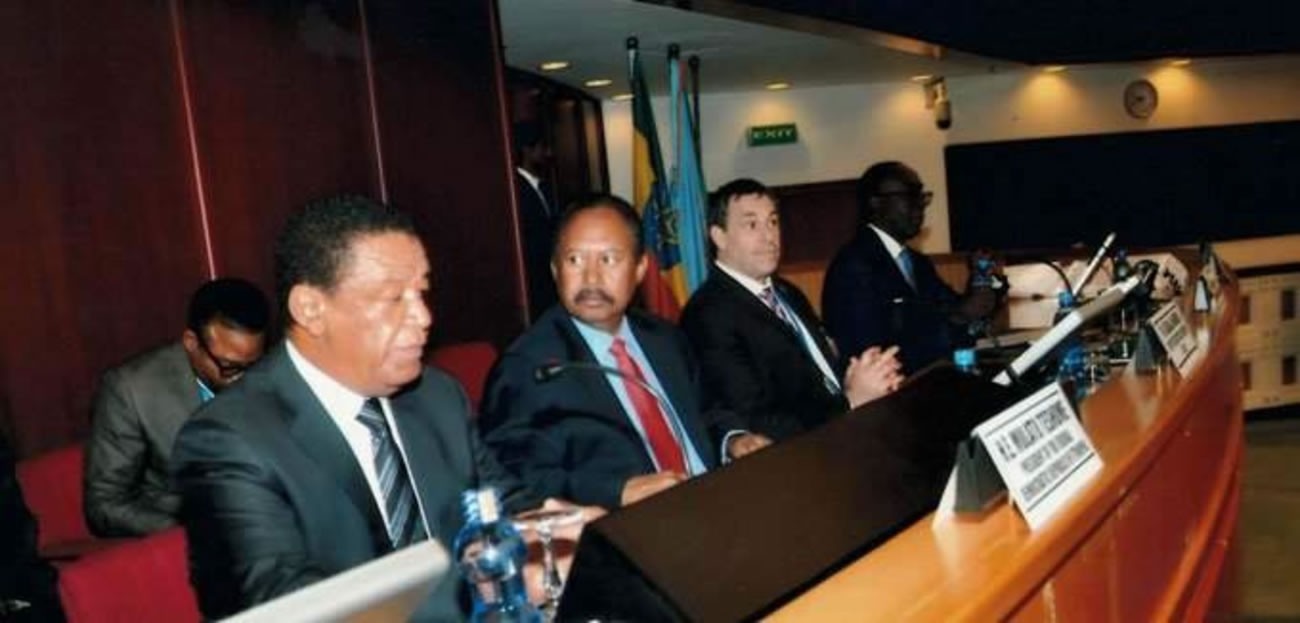Ethiopia’s Deputy Prime Minister, Mr Demeke Mekonnen has urged African statisticians and data experts to design a roadmap for the reform and modernisation of Africa’s official statistical systems.
This is contained in a statement issued by the Communications Section of the Economic Commission for Africa (ECA) on Tuesday .
Mekonnen, who is also Ethiopia’s Minister for Foreign Affairs, said this while addressing the joint opening session of meetings being held in Addis Ababa.
The meetings were part of the Eighth Statistical Commission for Africa (STATCOM).
The minister said the road map would provide reliable information for informed decision making.
He also spoke on the need for “comprehensive tools” that could enable governments to create and execute policies required to achieve the digital goals needed for efficient regional integration.
“It is unfortunate that Africa continues to have the highest proportion of unregistered births and deaths in the world.
“This situation, which has endured for a very long time, must change, and this event should define the steps Africa must take to stop the tragedy of invisibility,” he said d.
The minister, however, said only a handful of countries were capable of producing sufficient quality mortality and cause of death statistics to guide public health decision-making and planning.
He said that this was during the COVID-19 pandemic.
Mr Oliver Chinganya, Director of the ECA’s African Centre for Statistics spoke on the negative impact of the pandemic on civil registration and vital statistics systems.
Chinganya said this was particularly in Africa, which led to the absence of vital data.
“Data and statistics have never been more significant than they are now – they are needed to influence policies and measure progress to attain the 2030 Agenda for sustainable development as well as the African Union Agenda 2063.”
He spoke on the importance of modernising Africa’s data for facilitating regional integration.
Chiganya said it was for “enhancing the accuracy and efficiency of decision-making in support of a stronger regional integration in Africa”.
According to him, barriers to economic progress could only be overcome through a reliable data ecosystem.
“Participate in creative and innovative methods to solve some of the major obstacles facing National Statistics Offices such as limited funding, insufficient personnel, inadequate Information Technology infrastructure, and inadequate legislative framework.”
He called on African governments to generate and package data and statistics to guarantee that the narrative of Africa’s progress was properly captured.
Chinganya said the ECA was committed to providing technical assistance to member countries to restructure and modernise their statistics systems.
In a keynote address, Chris Baryomunsi, Uganda Minister for ICT and National Guidance spoke on the need to develop agile statistical systems that were resilient to crises.
Baryomunsi said such crises heavily impacted statistical production and National Statistical Systems.
He spoke on the need to improve administrative data and civil registration systems.
Baryomunsi said the systems together accounted for up to 70 per cent of the data required to monitor national development processes.
“It has been declared a ‘scandal of immense proportion’ that at the turn of the third millennium, few countries in Africa have complete civil registration systems.
“This scandal has had serious implications for vital statistics, human and constitutional rights, policy and national development,” Baryomunsi said.
The Eighth Statistical Commission for Africa was organised under the theme: “Modernising Data Ecosystem in Africa to Support Regional integration”.
It sought to strengthen the inter-related natural linkages between data, statistics and civil registration.

